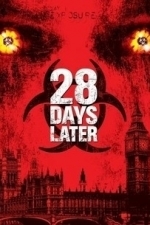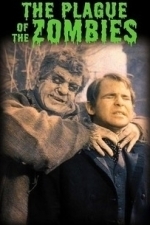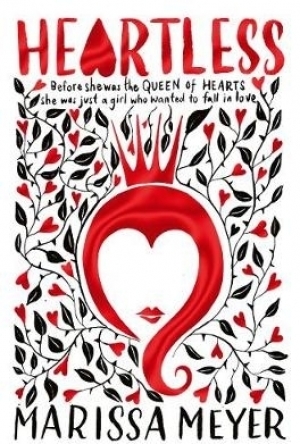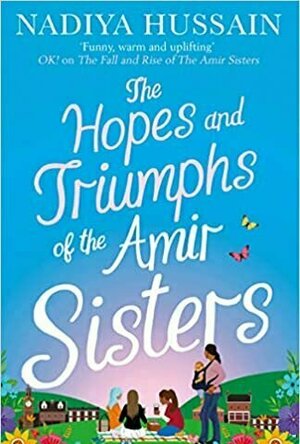Darren (1599 KP) rated 28 Days Later (2002) in Movies
Jun 20, 2019
Story: 28 Days Later starts by showing a group of activists breaking into a laboratory where chimps are forced to watch some of the most gruesome sites in human history. This was designed to create pure rage and when the chimps are released an epidemic starts. 28 Days Later (title drop) we meet Jim (Murphy) who wakes up in a hospital, alone he searches looking for help but the hospital, streets and everywhere is empty. Wonder around the empty London Jim finds a church filled with infected that chase him before getting save by Mark (Huntley) and Selena (Harris) who also fill in the blanks of what happened.
Jim finds out the harsh reality of the world now but meeting Frank (Gleeson) and his daughter Hannah (Burns) gives them a chance to go to a radio signal left by the military. The group soon find the military holding up in a mansion lead by Major Henry West (Eccleston) but not everything is as it seems.
28 Days Later brings the modern infected zombie film to life in one of the best story ideas we have seen. It is good to see a story that the infection can only be spread rather than you turn when you die which is big change to all we have seen. The journey itself is been there seen that but what we get is a revenge film with infected around once we meet the military. This shows us that the enemy could come from all direction and our characters are never going to be safe in the world now. This is easily one of the best zombie based films in recent years. (9/10)
REPORT THIS AD
Actor Review
Cillian Murphy: Jim waking up alone in a hospital he wonders the empty city before being found by other survivors, with a group he heads to the military safe zone where he ends up having to fight to save the rest of his group from not only infected but the soldiers. Cillian gives a great performance and this put him on the map for bigger roles. (9/10)
jim
Naomie Harris: Selena the nonsense survivor who takes no prisoners which we see from the moment her fellow survivor gets infected. Naomie gives a good performance showing that she was always going to be in bigger films. (8/10)
Brendan Gleeson: Frank caring father who has waited for support before taking his daughter to a radio signal he has been hearing. This character may only be a supporting character but his final moments are one of the most memorable turns in this genre history. Brendan does a good job in what is just a supporting performance. (8/10)
Christopher Eccleston: Major Henry West who is running the military unit that has been calling for the survivors but his motives are not what they seem. Christopher gives a good performance in the role. (7/10)
Support Cast: 28 Days Later doesn’t have the biggest supporting cast we have a couple of other survivors as well as the soldiers in the military unit. They all help as they show us what the characters are capable off.
Director Review: Danny Boyle – Danny does a great job directing this zombie classic that is easily one of the best in the genre. (9/10)
Horror: 28 Days Later uses plenty of horror elements with survival horror shinning through. (10/10)
Music: 28 Days Later uses brilliant scores to build the tension up through the scenes. (9/10)
Settings: 28 Days Later uses the settings really well to show how empty busy places could be when the world comes to an end. (9/10)
Special Effects: 28 Days Later uses great special effects with the infected creation. (9/10)
Suggestion: 28 Days Later is one to watch for every horror fan out there. (Horror Fans Watch)
Best Part: Suspense building.
Worst Part: Nothing
Action Scene Of The Film: Jim breaks into the mansion
REPORT THIS AD
Kill Of The Film: Frank
Scariest Scene: Jim’s returns home
Believability: No (0/10)
Chances of Tears: No (0/10)
Chances of Sequel: Has one sequel with talks of another always around.
Post Credits Scene: There is the alternative ending
Oscar Chances: No
Box Office: $82 Million
Budget: $8 Million
Runtime: 1 Hour 53 Minutes
Tagline: His fear began when he woke up alone. His terror began when he realised he wasn’t.
Trivia: The scene where Jim and Selena celebrate with Frank and Hannah was shot on September 11, 2001. Danny Boyle said it felt extremely strange to shoot a celebratory scene on that particular day.
Overall: Brilliant Infected Film
https://moviesreview101.com/2015/03/14/28-days-later-2002/
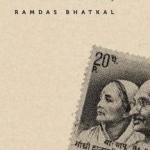
Jagadamba: The Kasturba Story
Ramdas Bhatkal and Yashodhara Deshpande Maitra
Book
While Mahatma Gandhi is hailed across the world as a champion of humanity and nonviolent struggle,...
Gareth von Kallenbach (980 KP) rated Crazy Rich Asians (2018) in Movies
Jul 2, 2019
Rachel Chu’s (Constance Wu) journey to meet her boyfriend Nick Young’s (Henry Golding) family could be a bit of a fish out of water tale. Rachel is the daughter of a Chinese single mother who immigrated to America. Being an economics professor at NYU, is pretty prestigious accomplishment and Rachel loves what she does. She has been seeing Nick for over a year. He has his best friend’s wedding in Singapore and suggests that Rachel comes along to meet his friends and family.
Nick is from a well off family, a subject that he had never mentioned before. The first thing that tips her off is the treatment that they receive on the plane. When Rachel finds out that his family is well off, it does not change their relationship. However, she still does not realize how extensive the family finances are and is definitely not aware of the social status of the Youngs.
Singapore in all of its crisp and elegant beauty is a character in itself. We are taken to the many sites on the island as it is shown to Rachel. From the moment the couple arrive, they are met at the airport by Colin Khoo (Chris Pang), Nick’s best friend the groom and Araminta Lee (Sonoya Mizuno) the bride. They are taken to one of the Hawker’s Centre full of stalls, each specializing in a handful of dishes, some with a Michelin Star. We see an incredible smorgasbord in a quick cut of food porn. Nothing in Rachel’s first taste of town indicates the opulence that is to come.
Rachel goes to see Piek Goh(Awkwafina), her roommate during college. The Goh family is “new wealth” and we see the gilded display throughout to the point of excess. We meet Piek’s parents , Neenah (Chieng Mun Koh) and Wye Mun (Ken Jeong, bringing his brand of weird, creepy and awkward as Piek’s dad). The Gohs welcome Rachel with such warmth and treats her like family. This is where she learns how affluent and respected the Young’s are in Singapore. Piek takes it upon herself to provide her best friend with a fabulous suit of armor and education in order to survive the introduction to the world of the Youngs.
Meeting the Youngs is comparable to being introduced to the Royal Family of Singapore and Rachel was not aware of the social graces that are expected in the circles of the crazy rich. You can see that she is not accustomed to the superabundance that she is witnesses and is a little overwhelmed in trying to adapt. As Nick introduces her to his mother Eleanor (Michelle Yeoh), Rachel immediately gleams that his mother does not like her. Thus begins the power play between them. Eleanor doesn’t think that Rachel is an appropriate candidate to be the future Mrs. Young and Rachel wants to be accepted as she is and now feels the need to prove that she is good enough for Nick.
The only member of Nick’s family that Rachel has met is Astrid Young Teo (Gemma Chan) his cousin. If Eleanor is the Queen, then Astrid is the princess. She doesn’t walk, she glides. The societal cognoscenti hold her in high esteem. The women want to have her style and the men want to have her. With all the grace and beauty, she reigns in the land of the crazy rich. Rachel liked her some much that she says Astrid is who she wants to be when she grows up. Those who think that her life golden, is unaware that she has her own problems.
We are introduced to the wedding party and the extensive lavishness of the super rich of Asia. It may seem ridiculous and an exaggeration, but the lifestyle of the crazy rich and Asian is based on reality. As Rachel carefully steps through the social landmines that have appeared, she becomes more confident in her own ability and recognizes the game and how to play it.
I thoroughly enjoyed this movie, I wanted to see it again to catch all the things that I did not soak in from the first viewing. The story has a great balance of comedy and drama with Ken Jeong and Awkwafina gifting us with hilarious one liners and Constance Wu playing the confident woman learning how to find her footing. Henry Golding does exceptionally well on his first ever feature film, playing the man who has found love outside of the world of the Crazy Rich Asians.
This is an excellent romantic comedy that is served on a golden platter. Jon M. Chu has delivered a wonderfully delicious story that deserve to be watched over and over again. If you are a fan of the romantic comedy genre, take the time with this gem of a movie.
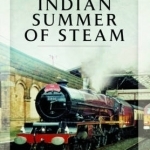
An Indian Summer of Steam
Book
'An Indian Summer of Steam' is the second volume of David Maidment's 'railway' autobiography,...
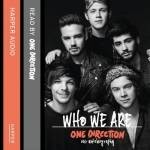
One Direction: Who We are: Our Official Autobiography
Book
For the first time EVER, global superstars One Direction are releasing their 100% official...
Darren (1599 KP) rated The Plague of the Zombies (1966) in Movies
Jul 25, 2019
When Peter’s wife Alice (Pearce) dies, the two try to figure out what killed her, only what they discover isn’t human. Soon it appears the village is being over run by the zombies and they must hunt down the master controlling them.
Thoughts on The Plague of the Zombies
Characters – Sir James Forbes is the respected doctor that gets called upon to help with an unknown medical case, he will help his former student uncover the case, he does believe something unusual is going on and starts to worry about his daughter. Sylvia is the daughter that goes on the journey, she becomes the target from the master who wants her to become his bride. She is the typical 60’s damsel in distress. Dr Peter Tompson is the one who called for help knowing his mentor wouldn’t let him down when it comes to figuring out the unexplainable. Alice is Peter’s wife that is the latest to become cursed with what is happening within the village, she makes it feel more personal for the two doctors.
Performances – Andre Morell as the more experienced doctor is entertaining to watch through the film, he fits the wiser role with ease. Diane Clare fits your typical 60’s horror figure for the era, never doing much more than screaming. Brooke Williams doesn’t make his character feel like a doctor though.
Story – The story follows a doctor that is asked to investigate a new outbreak of a disease in a small village, only to learn it has connection to voodoo and zombies. We must think that this story was put together before zombie movies had over taken the world, the idea behind voodoo and zombies was always a connection which works for the ideas being used in this story. the story might not be the most intense and does end up being rather safe with how everything being handled, never managing to reach any level of creepiness which could be associated with voodoo zombie creation.
Horror – The horror in this film comes from the ideas of zombies and voodoo, which for the time, was one of the scarier elements of horror, even if it has been watered down in the modern era.
Settings – The film is set in a small Cornwell village, which shows us how the community has become considered, while also showing how the community could stick together with a more evil idea going on.
Special Effects – The effects in the film comes from the zombie creations, which show us a wonderful use of make-up, with other elements of the film coming from how injuries are inflicted.
Scene of the Movie – Alice rises.
That Moment That Annoyed Me – Not as creepy as it could be.
Final Thoughts – This is a horror that when released would have gotten more scares, now it has dated and just doesn’t connect the audience in the same way it once did.
Overall: Hammer horror 101
Practical Information Security Management: A Complete Guide to Planning and Implementation
Book
Create appropriate, security-focused business propositions that consider the balance between cost,...
Micky Barnard (542 KP) rated Heartless in Books
Oct 6, 2018
What I like about this book were the two lead characters Jest and Cath. Cath started as a disillusioned young woman, entitled in the true sense but longing to be ordinary and follow her love of baking. Cath evolved into a spirited but whiney woman but towards the end became unrecognisable and I can't even say there was a journey to the change in her. Cath become a bomb.
Jest was absolutely wonderful in every way. He was mysterious but loyal and he fell in love with Cath. I loved his character, his quirkiness, his tricks, his hat. Many of the side characters were enchanting: Cheshire, Raven and Hatter really stick out.
This book was difficult to read and slow in pace until 60% but I powered on. At 60% it got pretty exciting and the pace picked up. Then a bomb was dropped and my investment in this world and book fell apart. Words cannot express my heartache and I am disillusioned with how the author dealt with the events that occurred. The characters had intangible behaviour towards the end and the lack of story once the events occurred was truly disappointing. I could have coped with the events if they were supported by good writing and depth, they were not. I feel let down as a reader and I can't see myself returning to this author again.
A copy of this book was provided by the publisher in return for an honest review.
Ivana A. | Diary of Difference (1171 KP) rated The Hopes and Triumphs of the Amir Sisters in Books
Oct 5, 2020
The Hopes and Triumphs of the Amir Sister is the third book in a series that features the Amir sisters. In this book the spotlight is on Mae, the youngest sister of them all. I haven’t read the other two books, but I hope they are better than this one.
Mae was a very annoying character.
And the fact that she was the main character in this book was probably the main reason I didn’t enjoy listening to this book. She has grown up watching her sisters be in the spotlight, living their lives, getting married, having children. She has always been there to help them with everything they might need, because that is her responsibility as their sister.
When Mae heads to university, she fails to fit into any group and make friends. Whenever she goes home and tries to talk about her university life, her stories are lost to the more important stories of her sisters and their babies. Mae feels angry and upset, which leads to her making some decisions that are perhaps unlike her, and also hide some important news from the whole family.
I think the whole family had many issues as a whole, and each individual member had problems on their own.
It is possible that I have never read about a more dysfunctional family that doesn’t work together, but pretends it does. I have seen families that just accept the fact that something is wrong. But this family just keeps going in this weird direction, and it made me uncomfortable throughout the whole journey.
The book in itself handles a lot of sensitive topics, such as sexual advances, public shaming on social media when women put makeup on the train, racism, sexuality, religion, cultural beliefs etc. I felt that this was the only bright spot in the book, to make the readers aware of what is happening, and how some characters respond to it.
Mae was the character I couldn’t relate to the most. Her thoughts and opinions, her way of seeing life was just something I did not agree with. I can understand that she might have been living in a bubble her whole life before moving to university. However, to be so unaware of the outside world and the people around it was just beyond me. I couldn’t agree with how she accepted defeat as something that comes to her by default, and how she was so uninterested to do anything that can make her happier. Refusing to improve in any way is a big character flaw, and I cannot agree with it.
Honestly, I did not enjoy The Hopes and Triumphs of the Amir Sisters.
I am not sure why, but there was so much unnecessary drama, without any real reasoning behind it. Perhaps the fact that I consumed this book as an audiobook has something to do with it as well. The narrator’s voice was really annoying and high-pitched.
The ending was average and very predictable. I didn’t feel as if the characters actually learnt anything in particular about themselves or each other. In conclusion, this book was not for me and I didn’t enjoy it.
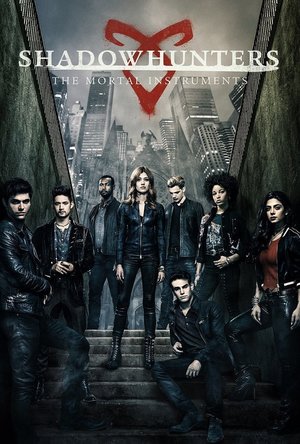
Shadowhunters - The Mortal Instruments
TV Show
Clary Fray has just enrolled at Brooklyn Academy of Arts. On her eighteenth birthday, she learns...
Based off The Mortal Instruments by Cassandra Clare Supernatural Werewolves Vampires Warlocks Seelie
